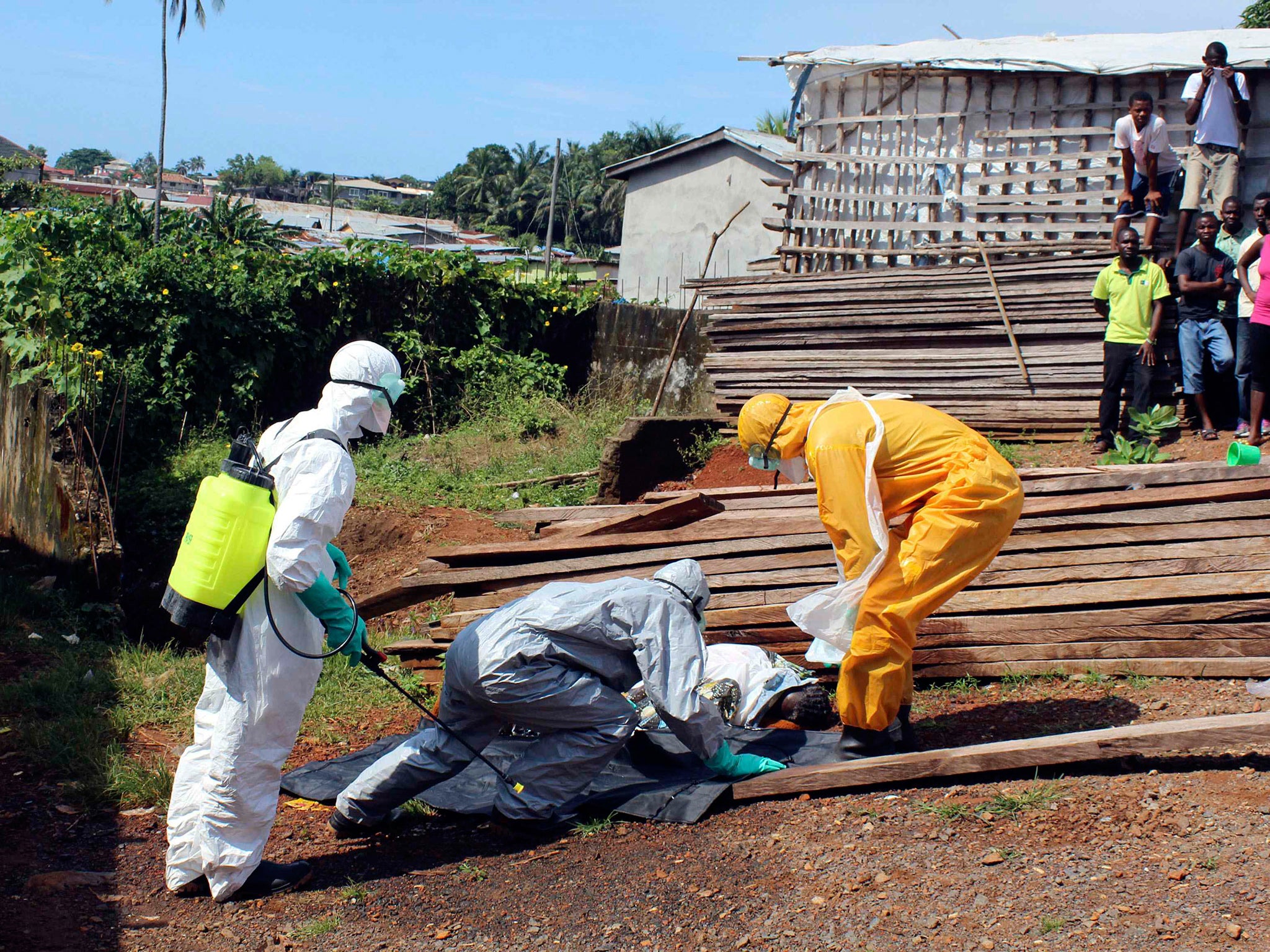Ebola: Sierra Leone to pay families of health workers who die of virus $5,000
Announcement comes after sixth doctor tests positive for Ebola

Your support helps us to tell the story
From reproductive rights to climate change to Big Tech, The Independent is on the ground when the story is developing. Whether it's investigating the financials of Elon Musk's pro-Trump PAC or producing our latest documentary, 'The A Word', which shines a light on the American women fighting for reproductive rights, we know how important it is to parse out the facts from the messaging.
At such a critical moment in US history, we need reporters on the ground. Your donation allows us to keep sending journalists to speak to both sides of the story.
The Independent is trusted by Americans across the entire political spectrum. And unlike many other quality news outlets, we choose not to lock Americans out of our reporting and analysis with paywalls. We believe quality journalism should be available to everyone, paid for by those who can afford it.
Your support makes all the difference.The Sierra Leone government has announced it will compensate the family of any health worker who dies as a result of treating an Ebola patient with a one-off £3,100 ($5,000) payment.
The announcement comes after a sixth doctor in the country tested positive for the virus.
The National Ebola Response Centre said the benefit would be paid retroactively to relatives of the more than 100 health workers who have died from the disease in Sierra Leone. The figure includes all five doctors who had previously tested positive.
It did not detail exactly what costs the one-off payment was expected to cover.
At least 1,062 people have died from the virus in the country. The toll from the epidemic in the three worst hit countries, Sierra Leone, Guinea and Liberia, has risen to 4,950 from more than 13,000 people infected, according to date from the World Health Organisation.
Martin Sallia, a physician specialist at the main Connaught hospital in the capital Freetown, tested positive on Tuesday, according to senior physician specialist James Russell.
Sallia initially tested negative on Friday and was discharged but when his symptoms did not alleviate he was tested again and proved positive, Russell said.
Earlier this week, a group of charities warned that of the 800,000 women expected to give birth in Sierra Leone, Guinea and Liberia in the next 12 months, up to 120,000 could die because they are denied access to basic emergency care.
Additional reporting by Reuters
Join our commenting forum
Join thought-provoking conversations, follow other Independent readers and see their replies
Comments